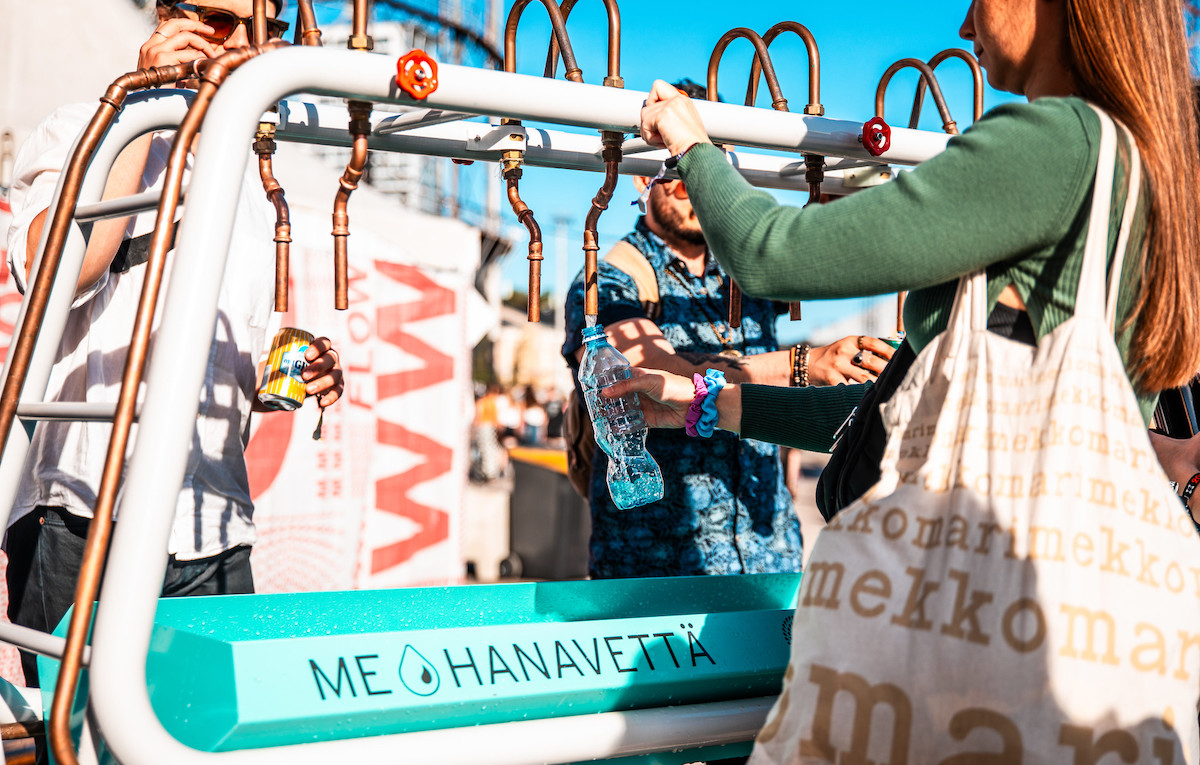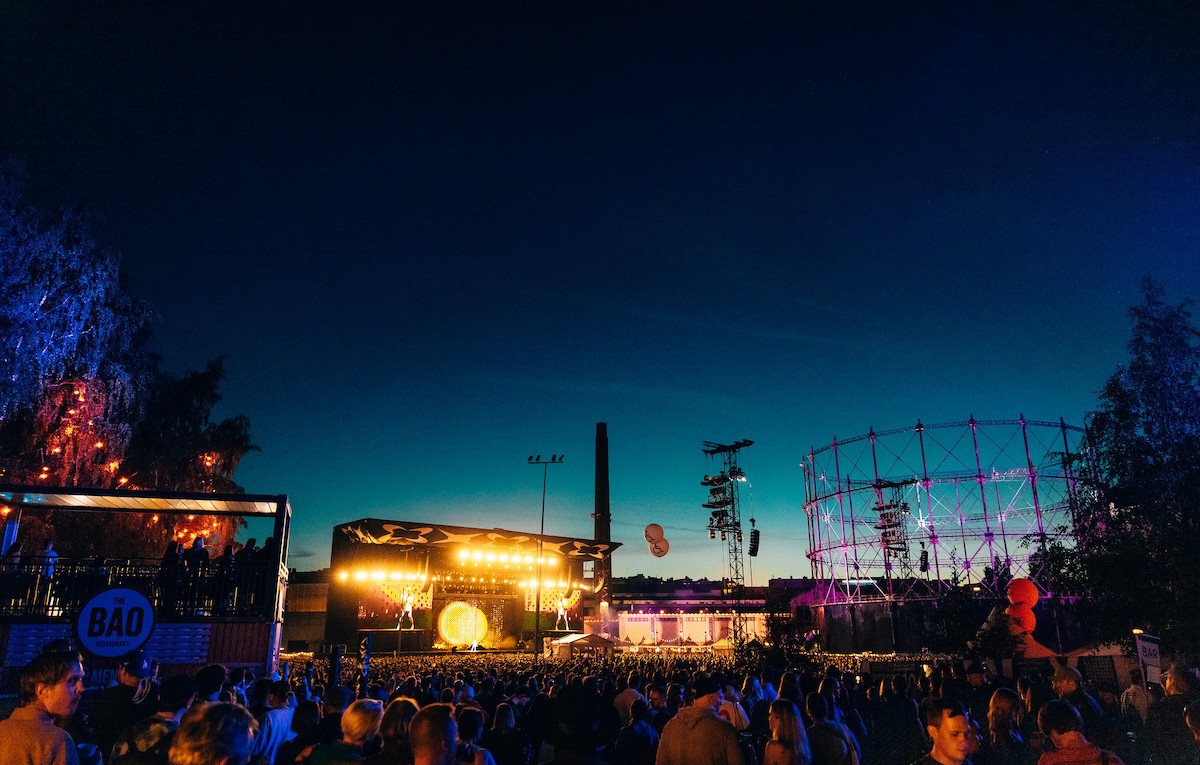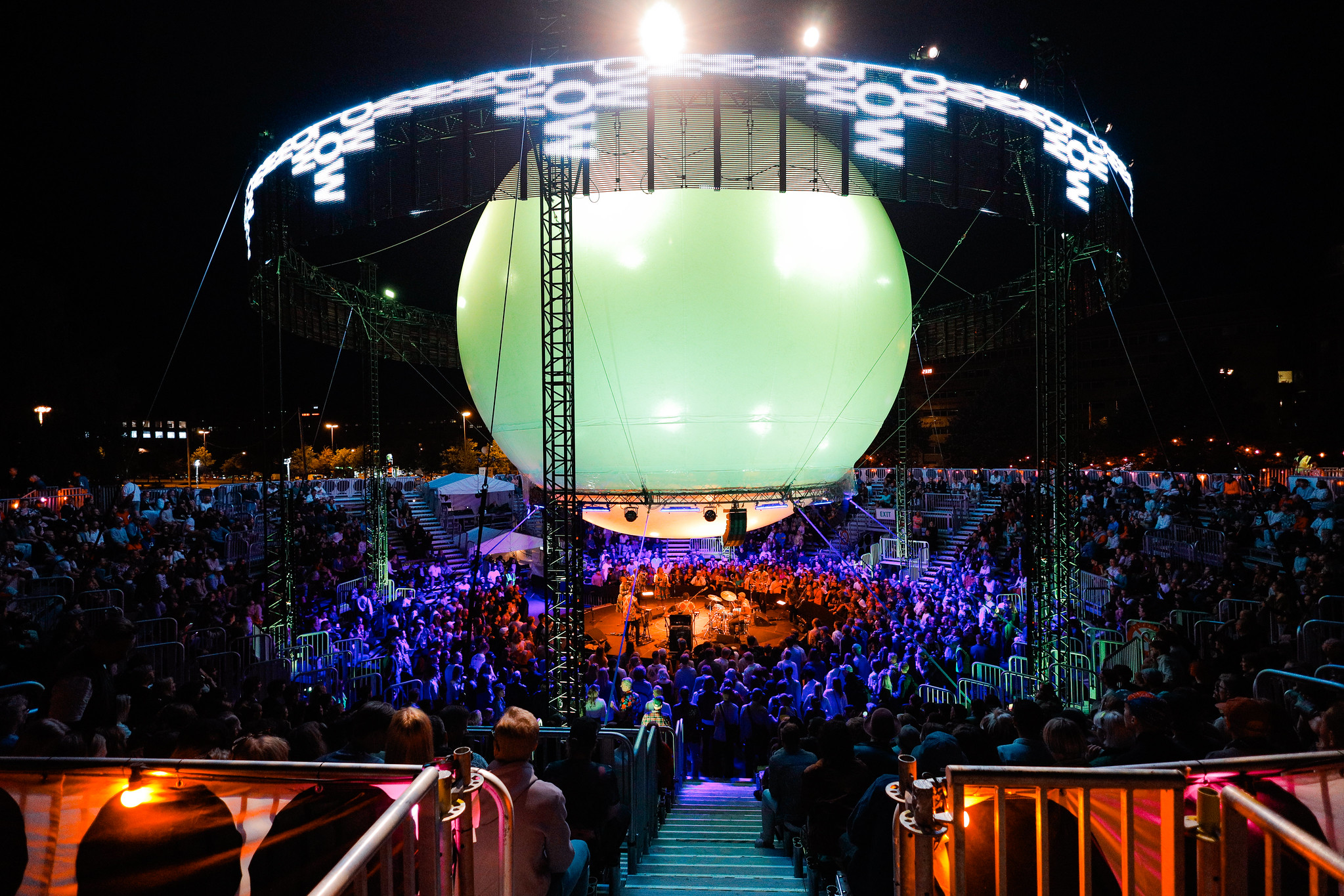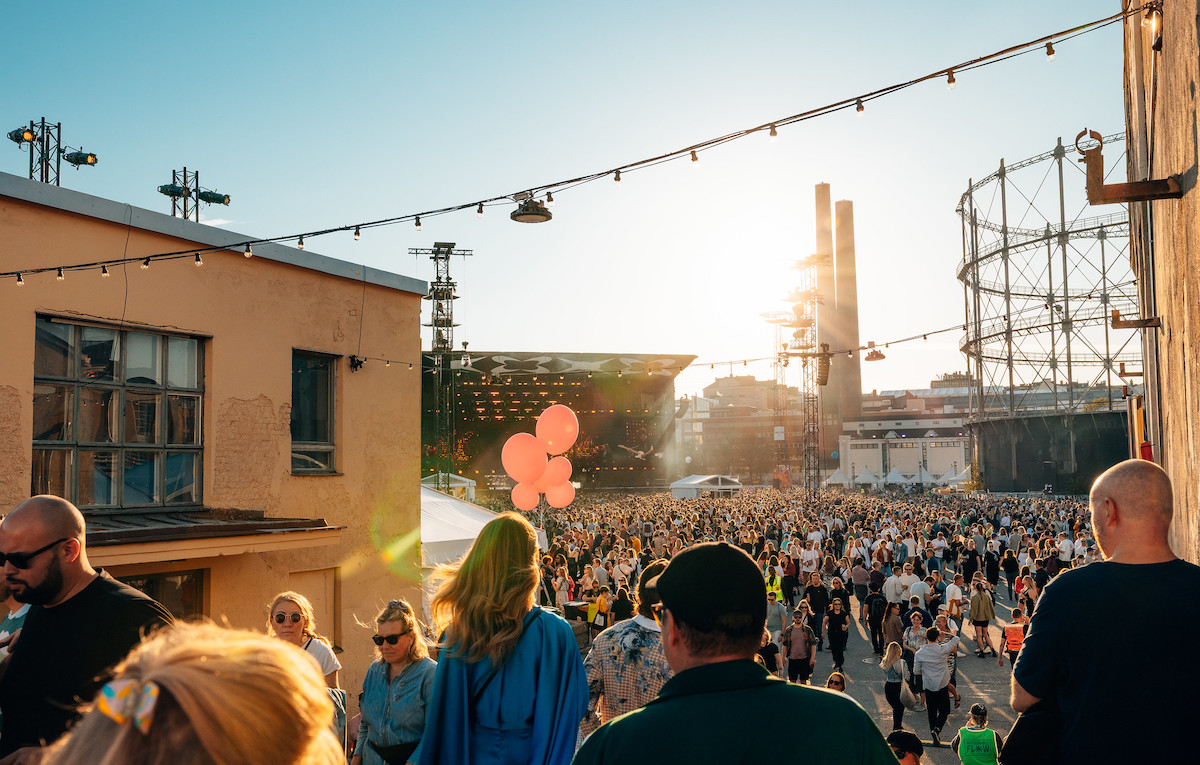Imagine a festival where there are no queues. Neither at the entrance, nor at the bars (there are twenty of them, each with at least 6 employees), at the toilets. Water is free and there are fountains with multiple faucets scattered in different areas. No red meat or poultry is served and there is at least one vegan selection at each of the 40 culinary stalls, with a primary focus on eco-friendly menus featuring vegetarian options and local produce. THERE IS NO TOKEN; You pay by card and the drink is served. There is a surcharge of one euro for the cans, which is refunded when the empty can is returned. This creates a self-cleaning system for the site, which despite receiving 30,000 people per day is presented at the end of the day in a state of 100% almost complete order. Separate collection is practically everywhere. Earplugs are given away to support the very dignified volumes of the 9 boxes on site. Do you think all this is impossible? Then you might need to jot down a name: Flow Festival.
Part of the industrial site. Photo: Flow Festival / Petri Antiila
Finding a festival where all the conditions set out in the introduction are present at the same time and where there is a whole range of genuine interventions in terms of environmental sustainability is almost utopian. Everyone who experiences festivals knows that, as does everyone who organizes them. But the Flow Festival succeeds in turning what we normally regard as utopia into reality. Not only a fully functioning infrastructure system – also thanks to the choice of an exceptional location, a former power plant near the city center, accessible by metro and bus and with a huge parking lot for bicycles – but also an attention to detail, which guarantees the visitors of this three-day event in mid-August (this year from August 11th to 13th, next time from August 9th to 11th) a comfort experience simply unthinkable elsewhere. This creates a climate of humanity and a supportive community, where there are no bumps, no elbows in the stomach and no human space to experience concerts or DJ sets: the festival also becomes an ideal place for civilization, outside of it Walling up anything that doesn’t work reminds us, if only for three days, that as a species we are still able to live happily together.

The wondrous appearance of water. Photo: Flow Festival / Riikka Vaahtera
But what happened on Flow’s nine stages – four for concerts, four for DJ sets and one for pure sound experiments? There was the blur presenting The Ballad of Darren, Wizkid that got everyone twerking and a Lorde in top form. Tove Lo, Caroline Polachek, Shygirl, 070 Shake, Christine and the Queens and Kelela made it clear to us that the future of sophisticated good pop is assured. Nu Genea – the only Italian artist in the line-up – won Finnish hearts by filling the third largest stage of Flow despite Pusha T performing live at the same time. The Resident Advisor-curated stage was a certainty, with DJ sets – among many others – from Eris Drew & Octo Octa, Nene H, Jyoty, Louie Vega, Chaos in the CBD, during Balloon 360 (the festival’s iconic stage, a small arena with a stage in the middle on which a balloon stands (residual balloon lit as a cover) hosted the most jazzy and afrobeat concerts such as those by Nala Sinephro, Domi and JD Beck, Meshell Ndegeocello and Arp Frique.For seekers of new sounds, the only indoor stage (called The Other Sound) a universe of ambient and modular art installations featuring Arushi Jain, Maya Shenfeld, Claire Rousay and many others, while the X Garden guaranteed a constant queer and party atmosphere.

Photo: Flow Festival / Petri Antiila
Sure, that’s cool, but how much will it all cost in Finland? Paradoxically, with increases we’ve personally only seen at Italian festivals, the gap between Finnish costs and ours has narrowed drastically over the years. To be clear, the ticket price for the 2024 edition is €199 so far – as an early bird price – and will increase to €219 in the second release (to be clear: the Barcelona Primavera costs €255 in the second release), a price totally in line with the European average . Drinks have also been brought into line at Italian festivals and 8 euros for a beer and 12 euros for a drink have now become the norm even in the Nordic countries. Only here there are no tokens, money lost on bracelets that are not refunded, or crazy water charges (remember: at Flow it is free and the public is encouraged to bring their own water bottle, contrary to Italian bans).

The Balloon Stage. Photo: Flow Festival / Konstantin Kondrukhov
For those who love festivals, visiting the Flow means getting the most out of the experience, because there is no major European city festival that could function in such a fluid way in all its appendices. No problems arose in three days (having checked dozens of festivals this summer alone, we can assure you that we found all of them more or less serious problems, more or less burdensome for the public) or if If there were any, the problems were solved within three days so quickly that we didn’t even notice. Of course the Finnish system is a system that works in itself and that certainly facilitates, but the Flow Festival is a case study of how to organize a festival. If you want to understand how they should be carried out, know the dates: from August 9th to 11th, towards Helsinki.

